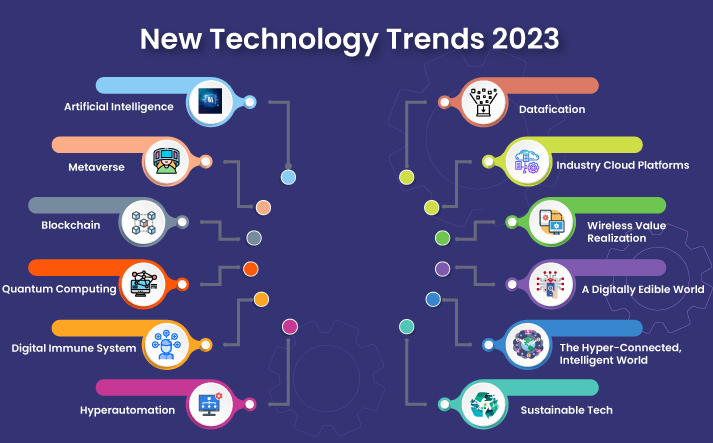The Power Of Middle Management: Driving Performance And Fostering A Positive Work Environment

Table of Contents
The Bridge Between Leadership and Employees
Middle managers act as a vital bridge, ensuring seamless communication and collaboration between upper management and the workforce. This critical role impacts morale, productivity, and overall organizational success.
Effective Communication and Information Flow
Effective middle management relies heavily on clear and consistent communication. They are responsible for translating complex strategic goals from leadership into actionable, understandable tasks for their teams. Simultaneously, they act as the voice of the employees, conveying feedback and concerns upward.
- Relaying company-wide updates and ensuring transparency: Keeping teams informed about company performance, new initiatives, and changes is crucial for maintaining morale and alignment.
- Actively listening to employee concerns and suggestions: Creating an environment where employees feel comfortable sharing their thoughts and ideas is key to fostering a positive work environment and improving processes.
- Providing clear and concise instructions and expectations: Ambiguity leads to confusion and decreased productivity. Clear instructions and well-defined expectations are paramount.
- Facilitating open dialogue and feedback sessions: Regular feedback sessions, both formal and informal, create a channel for continuous improvement and strengthen the manager-employee relationship.
Mentorship and Development
Beyond managing tasks, effective middle managers are mentors and developers of talent. They nurture their team members' skills and careers, contributing to a more skilled and engaged workforce.
- Providing regular feedback and performance reviews: Constructive feedback helps employees understand their strengths and areas for improvement, fostering growth.
- Identifying training needs and offering development opportunities: Proactive identification of skill gaps and provision of relevant training ensures employees are equipped for success.
- Mentoring and guiding employees in their career progression: Supporting employees in their career aspirations builds loyalty and fosters a culture of growth.
- Creating a culture of continuous learning and improvement: Encouraging employees to embrace new challenges and continuously learn enhances their skills and adaptability.
Driving Performance Through Effective Team Management
Middle management plays a critical role in optimizing team performance. This involves clear goal-setting, effective delegation, and consistent monitoring.
Goal Setting and Performance Monitoring
Setting achievable goals and tracking progress is fundamental to successful team management. Middle managers are instrumental in ensuring alignment between individual and organizational objectives.
- Collaboratively setting SMART goals (Specific, Measurable, Achievable, Relevant, Time-bound): Involving the team in goal-setting promotes ownership and commitment.
- Regularly tracking team performance against goals: Monitoring progress and identifying potential roadblocks early allows for timely intervention and course correction.
- Identifying and addressing performance bottlenecks: Proactive problem-solving ensures that teams stay on track and meet their objectives.
- Celebrating successes and acknowledging achievements: Positive reinforcement boosts morale and motivates the team to continue performing well.
Delegation and Empowerment
Effective delegation empowers team members, fostering a sense of ownership and increasing overall productivity. It's not just about assigning tasks, but about providing support and trust.
- Assigning tasks based on individual strengths and skills: Matching tasks to individual capabilities maximizes efficiency and employee satisfaction.
- Providing necessary resources and support: Ensuring teams have the tools and support they need to succeed is vital for successful delegation.
- Empowering team members to make decisions and take ownership: Giving employees autonomy fosters their growth and strengthens their commitment.
- Trusting employees to manage their workload effectively: Trust is essential for building strong relationships and creating a positive and productive work environment.
Fostering a Positive and Productive Work Environment
Middle managers are key to shaping the work environment. Their actions directly influence employee morale, engagement, and overall well-being.
Building Strong Team Cohesion
A strong team is a productive team. Middle managers play a pivotal role in fostering a positive and collaborative team dynamic.
- Promoting teamwork and collaboration through team-building activities: Team-building exercises enhance communication and collaboration.
- Encouraging open communication and mutual respect: Creating a safe space for open communication promotes trust and mutual understanding.
- Addressing conflicts constructively and fairly: Effective conflict resolution is crucial for maintaining a harmonious work environment.
- Recognizing and celebrating individual and team accomplishments: Acknowledging achievements boosts morale and strengthens team spirit.
Promoting Employee Wellbeing and Engagement
Employee well-being is inextricably linked to productivity and retention. Middle managers can significantly impact this by creating a supportive environment.
- Creating a supportive and inclusive work environment: A welcoming and inclusive environment fosters employee engagement and well-being.
- Recognizing and rewarding employee contributions: Acknowledging hard work and dedication boosts morale and motivates employees.
- Promoting work-life balance and preventing burnout: Encouraging healthy work habits helps prevent burnout and improves employee well-being.
- Addressing employee concerns and offering support: Providing support and addressing concerns demonstrates care and builds trust.
Conclusion
In conclusion, the power of middle management is undeniable. Effective middle managers are essential for bridging the gap between leadership and employees, driving team performance, and fostering a positive and productive work environment. By focusing on effective communication, mentorship, delegation, and team building, middle managers can significantly contribute to the overall success of an organization. Investing in training and development programs for middle managers is crucial to maximizing their potential and unleashing the full power of middle management within your organization. Don't underestimate the impact of strong middle management; nurture and empower your middle managers to achieve optimal results and unlock the true potential of your workforce. Remember, investing in effective middle management is investing in the success of your entire organization. Start building a stronger middle management team today – your organization's success depends on it.

Featured Posts
-
 Is Instagrams New Video Editor A Tik Tok Killer
Apr 24, 2025
Is Instagrams New Video Editor A Tik Tok Killer
Apr 24, 2025 -
 John Travolta Honors Late Son Jetts 33rd Birthday With Moving Photo
Apr 24, 2025
John Travolta Honors Late Son Jetts 33rd Birthday With Moving Photo
Apr 24, 2025 -
 India Market Update Tailwinds Powering Niftys Strong Performance
Apr 24, 2025
India Market Update Tailwinds Powering Niftys Strong Performance
Apr 24, 2025 -
 Ella Bleu Travolta 24 And Dazzling In New Magazine Cover
Apr 24, 2025
Ella Bleu Travolta 24 And Dazzling In New Magazine Cover
Apr 24, 2025 -
 2023 Market Trends Emerging Markets Lead Us Lags Behind
Apr 24, 2025
2023 Market Trends Emerging Markets Lead Us Lags Behind
Apr 24, 2025
Latest Posts
-
 Pam Bondi And The Epstein Client List A Timeline Of Events
May 10, 2025
Pam Bondi And The Epstein Client List A Timeline Of Events
May 10, 2025 -
 Unsealed Documents What Pam Bondi Knows About The Epstein Client List
May 10, 2025
Unsealed Documents What Pam Bondi Knows About The Epstein Client List
May 10, 2025 -
 The Epstein Client List Pam Bondis Involvement And Potential Fallout
May 10, 2025
The Epstein Client List Pam Bondis Involvement And Potential Fallout
May 10, 2025 -
 The Future Of Chinas Canola Imports A Look At New Suppliers
May 10, 2025
The Future Of Chinas Canola Imports A Look At New Suppliers
May 10, 2025 -
 China Re Evaluates Canola Supply Sources After Canada Relations Sour
May 10, 2025
China Re Evaluates Canola Supply Sources After Canada Relations Sour
May 10, 2025
